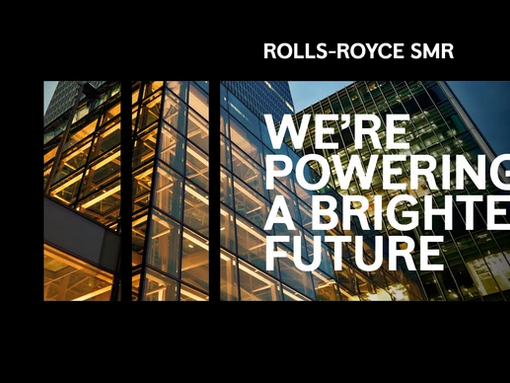
‘Climate Quitting’ A talent driven trend for a more sustainable future
In recent years, there has been a growing trend of talented individuals leaving their jobs in order to pursue more environmentally responsible careers. This trend, known as ‘climate quitting’ is driven by a growing awareness of the need to address the pressing issues of climate change and environmental degradation, as well as a growing sense of personal responsibility among workers to contribute to these efforts.
In fact, a recent LinkedIn poll showed that 39% of respondents stated that prioritising a company working to tackle climate change was their main criteria when searching for a new job.
Commentary provided by Nabeel Ashraf, Associate Director at Morson Talent

As our energy mix changes away from Fossil fuels towards greener sources of energy, how infrastructure projects are delivered are going to change dramatically over the next few years, technological innovations that help with the production of clean energy are going to be big enablers in helping us achieve our 2030 targets, as are start up companies who support this innovation. Whilst the cost of living is increasing, and there is likely to be a fall in new Infrastructure projects in 2023, the shortage of skilled engineers remains and the demand for these skills high, particularly those with tech skills.
Nabeel Ashraf
There are a number of reasons why talent is leaving or considering leaving their current careers to pursue more environmentally conscious roles within the clean energy industry. One of the main reasons is that many workers are becoming increasingly aware of the urgent need to address climate change and the role that the clean energy industry can play in mitigating its effects.
The clean energy industry is growing rapidly, and with it comes a wide range of new job opportunities. These opportunities range from the development and installation of renewable energy sources such as solar and wind power, to the design and manufacturing of energy-efficient technologies. As a result, many workers are finding that there are huge opportunities for progression coupled with the potential to make a difference in the clean energy industry.
Another reason for ‘climate quitting’ is that individuals are becoming increasingly concerned about the environmental impact of their current jobs. Many workers are realising that their current roles are contributing to the climate crisis, and they want to do something to make a difference. By moving into the clean energy industry, they know that they are actively working towards this shared goal with alongside colleagues and a company that matches their values.
Working in the clean energy industry is becoming more and more attractive to talent as it’s a field that is not only environmentally friendly but also has a positive impact on the society and economy. Clean energy projects are often large-scale, and have a significant impact on the communities in which they are located, they can create jobs and boost local economies, which is a huge plus. Recently, Bristol City Council signed off on the City Leap project which is set to invest at least £424 million into clean energy projects across the city within the first 5 years of the project, aiming to create 1,000 new jobs and reduce the city’s carbon footprint by at least 140,000 tonnes.
Rolls Royce SMR
Rolls Royce SMR, are a company creating affordable clean energy for all. They are also at the forefront of encouraging this shift of talent into more environmentally sustainable careers. Adam Ellis, Talent and HR Director for Rolls Royce SMR recently discussed the growing need for the clean energy industry to think differently about where they recruit talent from. In light of the demand on nuclear and engineering skills, and the time it will take to draw down new skills from those still in education. With salaries for sought-after engineering skills already resulting in offers of 10-30% above market rates, it is not sustainable for competing employers to keep fishing in the same dwindling pool for the talent they need.

Adam discussed their two clear strategies for addressing this issue. Firstly, Rolls Royce SMR is not only engaging young people in high school, further education and higher education but is also working with education providers that will take them beyond the usual milk round of engineering candidates. Rolls Royce SMR is combining training and career opportunities with practical thinking, such as providing accommodation for apprentices. And it is also casting the net beyond conventional STEM talent pools to widen the disciplines involved in pioneering a new era of clean energy generation to arts subjects.
That focus on inspiring candidates to get involved in a new era of clean energy generation is the other key strand of Rolls Royce SMR’s people strategy. By transforming the employee value proposition (EVP) and positioning the SMR sector as an innovative, exciting place in which to build a career, Rolls Royce aims to make nuclear an aspirational sector for both young people and career changers.
As UK companies work towards net zero, there is need for a change in the way we work particularly the way we deliver projects. These changes are going to require engineers to use new technology and acquire new knowledge and skills, this may not have been part of their courses they learnt at college or University, particularly those in Senior Positions.
How is the fossil fuel industry reacting?
One of the most significant impacts of this trend is on the fossil fuel industry. As more and more workers leave traditional energy jobs to pursue more sustainable careers, the fossil fuel industry is facing a talent crunch. This has led to a decline in productivity and a slowdown in the development of new energy technologies, which could ultimately hamper the industry’s ability to meet future energy needs.
To combat this, the fossil fuel industry is working to become more environmentally conscious in a variety of ways. Some companies are investing in cleaner-burning natural gas as a transition fuel to reduce emissions. Others are investing in carbon capture and storage technology to capture and store carbon dioxide emissions before they are released into the atmosphere. Additionally, some companies are investing in renewable energy sources such as wind and solar power, BP for example is beginning construction of a new utility-scale solar project in Ohio creating over 200 jobs and powering over 20,000 homes. Additionally, companies are also investing in new technologies to make the extraction, production and transportation of fossil fuels more efficient and less polluting. However, these efforts are controversial, as some argue that the industry is not doing enough to transition away from fossil fuels and towards renewable energy sources.
The trend is also driven by changes in the labour market itself. As the global economy shifts towards cleaner and more sustainable technologies, many traditional jobs in the fossil fuel industry are becoming obsolete. At the same time, the demand for skilled workers in environmentally responsible sectors is growing rapidly. This has created a huge opportunity for talented individuals to transition into more sustainable careers, where they can make a real difference while also securing stable and well-paying jobs.
How is the labour market reacting?
The impact of this trend on the labour market is significant. As more and more workers leave traditional jobs to pursue more sustainable careers, there is a growing skills gap in many industries. This has led to increased competition for talented workers and has pushed up salaries and benefits in many environmentally responsible sectors. This, in turn, has made these careers more attractive to workers, further fuelling the trend.
The growing trend of talent moving into more environmentally responsible careers is also affecting the way that companies and organisations operate. As more and more workers choose to pursue sustainable careers, companies are forced to adapt to meet the changing needs of the labour market. This has led to a shift in company culture, as well as increased investment in training and development for employees. This, in turn, is helping to create a more skilled and engaged workforce, which is better equipped to address the pressing issues of climate change and environmental degradation.
There is going to a greater need for collaboration with those working within engineering disciplines and those in the technology sector, we at Morson have aligned our Tech and Engineering recruitment teams, with training to ensure we can help Infrastructure companies bridge that skills gap.
How are the UK government looking to address the green skills gap?
Last year, then Energy Minister Greg Hands co-chaired the first meeting of the UK’s first-ever dedicated group (The Green Jobs Delivery Group) for creating UK green job opportunities and plugging the green skills gap. Announced in October 2021, the UK Government’s net-zero strategy aims to support up to 480,000 highly skilled green jobs by 2030 by ‘levelling up’ and becoming zero carbon by 2050.
The UK currently, lacks the sufficient skills to deliver the government’s green agenda but the clean energy industry is not resting on its laurels. Working with the government and a number of initiatives have already been set up to help combat the growing need for talent within the industry.
One such initiative is the creation of the National Skills Academy for Environmental Technologies, which aims to provide training and qualifications for individuals seeking careers in the clean energy sector. Additionally, the government has set targets to increase the amount of energy generated from renewable sources and has implemented policies to promote energy efficiency. These policies are expected to create a large demand for skilled workers in the clean energy industry. The government also invest in education and training programs such as Apprenticeships, Graduate, Internship schemes to increase the number of young people with the skills needed to work in the sector. The UK also has several research programs focused on developing new technologies to support the growth of clean energy.
Green collar work force are workers focused on improving the environment. As a society we need to shift towards using green energy sources and as companies focus towards producing cleaner energy there is a growing work force in ‘green collar workers’ which Deloitte forecast will create more than 300million new jobs by 2050 globally. These roles offer a greater purpose and sense of fulfilment for those who want to work on projects than can make a difference to the future world we live in.
‘Climate quitting’ is here to stay. Many are leaving their current roles to pursue more environmentally conscious roles within the clean energy industry for a number of reasons. They are becoming increasingly aware of the urgent need to address climate change, they are attracted to the new job opportunities that the clean energy industry offers, they are concerned about the environmental impact of their current jobs, and they want to make a positive impact on the society and economy. This talent driven trend is going nowhere and the industries and companies that work towards helping talent achieve their personal environmental goals will see their appeal grow rapidly.
As a recruitment business that influences companies and people, Morson has an opportunity and a responsibility to drive positive change across commercial sectors on both a corporate and an individual level. Our EV company car fleet, Net Zero ambitions and ‘Plant a Tree for Every Placement’ campaign go some way to offsetting the carbon we generate as an organisation. However, it’s our ambition to create a culture of environmental awareness with eco champions to inspire the team to reduce emissions and prevent waste where we’ll see real change.
Find out more about Morson Group’s commitment to health, safety and the environment here.















